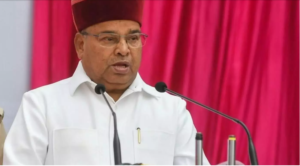Karnataka Governor Returns Amendments to Endowments Bill: In a significant development concerning religious and administrative affairs in Karnataka, the state’s governor has decided to return the amendments proposed to the Endowments Bill. This decision has sparked discussions and debates across the political spectrum, drawing attention to the delicate balance between governance, religious institutions, and the legal framework governing them. 
The Endowments Bill pertains to the management and administration of religious institutions, including temples, mosques, churches, and other places of worship. These institutions often hold significant cultural, social, and economic importance within their communities, with centuries-old traditions and practices shaping their governance structures.
In India, governors are appointed as the constitutional heads of states, with powers to approve or return bills passed by the state legislature. Their role in scrutinizing legislation ensures adherence to constitutional principles and safeguards the interests of the state and its citizens.
The proposed amendments to the Endowments Bill aimed to introduce reforms in the management and functioning of religious institutions. These reforms purportedly sought to enhance transparency, accountability, and efficiency in the administration of endowments, addressing concerns related to financial mismanagement, corruption, and lack of oversight.
The decision by the Karnataka governor to return the amendments to the Endowments Bill indicates a divergence of views between the executive and legislative branches of the state government. The governor may have identified legal or procedural irregularities in the proposed amendments, prompting the decision to seek further deliberation or revision.
The governor’s move has triggered varied reactions from different stakeholders, including political parties, religious leaders, legal experts, and the general public. Some view it as a necessary step to ensure the integrity of the legislative process and uphold constitutional principles, while others perceive it as an interference in the state’s autonomy or an attempt to delay much-needed reforms.
The political landscape of Karnataka is complex, characterized by diverse regional interests, coalition governments, and ideological differences. The governor’s decision is likely to fuel political debates and negotiations, with parties positioning themselves based on their stance on the Endowments Bill and its amendments.
Legal experts are closely examining the constitutional provisions and precedents governing the powers of governors regarding legislation. The decision to return amendments must be grounded in legal rationale and not perceived as arbitrary or partisan. Any subsequent actions taken by the state government or legislature will need to adhere to established legal procedures and principles.
The public discourse surrounding the Endowments Bill reflects broader concerns about governance, transparency, and the role of religious institutions in society. Civil society organizations, advocacy groups, and concerned citizens are actively engaging in discussions and advocating for inclusive and accountable governance practices.
As the debate unfolds, it is essential for all stakeholders to engage in constructive dialogue and seek consensus on the way forward. Balancing the autonomy of religious institutions with the need for regulatory oversight requires careful deliberation and collaboration between the government, religious leaders, civil society, and legal experts.
The governor’s decision to return amendments to the Endowments Bill underscores the complexities inherent in governing religious institutions and managing the delicate balance between tradition, governance, and reform. Moving forward, it is imperative for all stakeholders to work together to address the challenges facing religious endowments and uphold the principles of transparency, accountability, and constitutional integrity.





